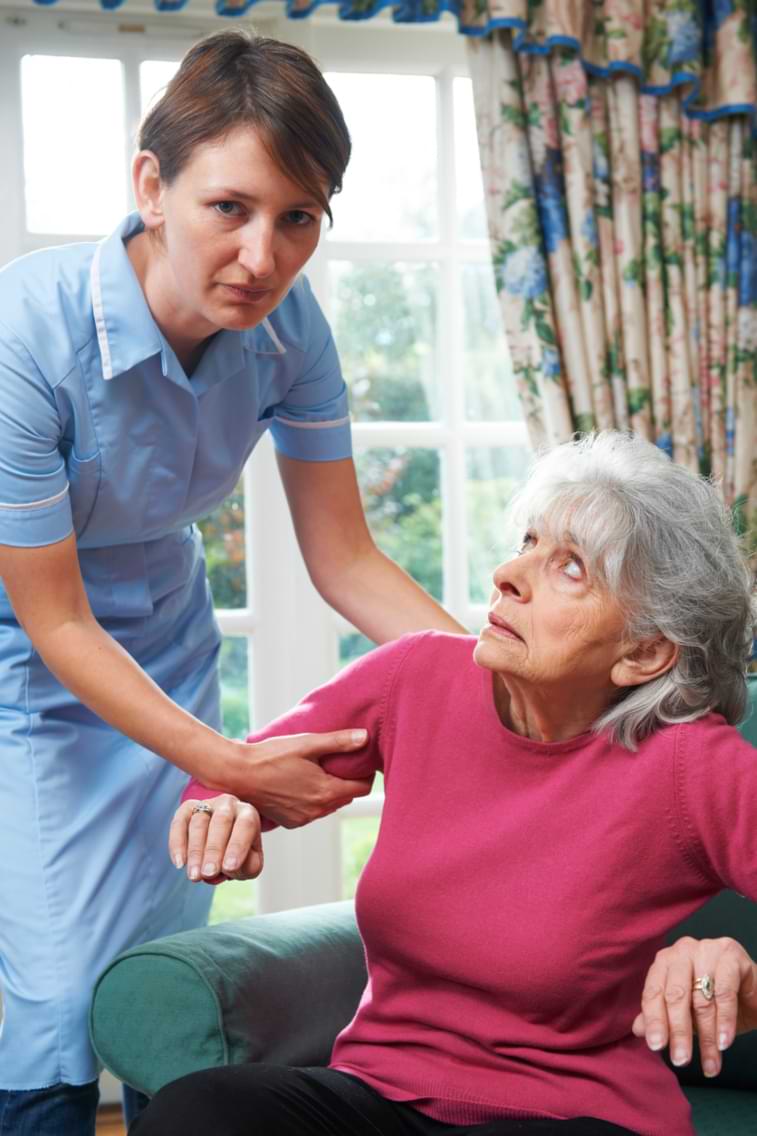Protect Your Loved One with a Leonardtown Nursing Home Abuse Lawyer
The American population is aging rapidly. According to the Population Reference Bureau, the number of Americans aged 65 and older is projected to more than double from 46 million today to over 98 million by 2060. Adults over the age of 65 are also projected to make up a much larger percentage of the general population, from 15% today to 24% by 2060. What this means is that the number of Americans entering nursing homes and other assisted living facilities over the next few decades is going to soar, exposing many more people to the dangers of nursing home abuse than ever before.

Signs of Nursing Home Abuse
Direct evidence of nursing home abuse is difficult to procure for several reasons. First, it often occurs behind closed doors, out of the sight of facility supervisors and the nursing home resident’s family members. Second, many nursing home residents may be unaware that they are being abused due to their deteriorated mental states. And third, even if they are aware that they are being abused, many nursing home residents will not report it due to embarrassment or fear of consequences.
As such, evidence that nursing home abuse is occurring must often be inferred using circumstantial evidence. Some of the most common signs that a nursing home resident is suffering from various forms of abuse include:
Physical Abuse
- Unexplained weight loss or dehydration
- Unexplained injuries such as scars, bruises, or welts
- Broken or fractured bones
- Signs that the resident has been restrained (like marks on wrists)
- Unsafe or unsanitary living conditions
- Drug overdosing or underdosing
Emotional Abuse
- Rapid or unusual mood swings
- Changes in eating or sleeping patterns
- The resident appears scared, depressed or withdrawn
- The resident engages in self-harming behaviors
- The resident’s caregiver refuses or is reluctant to let the resident see anyone alone
- Dementia-like symptoms, such as rocking, sucking, or mumbling
Sexual Abuse
- Bruising around the breasts, genitals, or anus
- Unexplained vaginal or anal bleeding
- Torn, stained, or bloody underclothes
- Contraction of a sexually-transmitted disease
- Symptoms of post-traumatic stress disorder
Our Leonardtown Nursing Home Abuse Lawyer Explains the Difference Between Abuse and Neglect
“Abuse” involves intentional behavior. As such, nursing home abuse occurs when a caretaker in a nursing home intentionally causes physical or emotional pain to a nursing home patient.
By contrast, “neglect” does not involve intentional behavior, but, rather, a pattern of disregard or inattention to the needs of the patient. Unfortunately, many instances of nursing home neglect occur due to the prevalence of underfunded and understaffed nursing facilities. The specific types of behaviors involved with nursing home neglect are more difficult to identify with specificity than with those for abuse, as they are defined primarily by what caretakers fail to do rather than what they actually do. Generally, nursing home neglect occurs when a caretaker fails to properly attend to the needs of a patient, which can include ignoring their requests for assistance, failing to feed them adequately, allowing them to fall or otherwise injure themselves, or forgetting to give them their medication, among others.
What to Do if You Suspect Nursing Home Abuse in Maryland
If a family member or close friend is displaying one or more of the above symptoms of nursing home abuse, a good starting point to address the problem would be to speak to a nursing home supervisor or a person in authority. If that is unsuccessful, you might want to contact a state agency that is responsible for monitoring the wellbeing of seniors, such as the Maryland Office of Adult Services or the Maryland Long-Term Care Ombudsman Program. Another good option would be to speak to a Leonardtown nursing home abuse attorney who will be able to evaluate your case to determine whether you may take legal action against the facility in question.
Contact a Leonardtown Nursing Home Abuse Lawyer
Nursing home abuse is a very serious matter that often requires swift action to stop it from occurring. at the Law Office of Thomas E. Pyles for a consultation. In addition to our Leonardtown, we also serve Maryland clients in Waldorf, Laurel and more.
